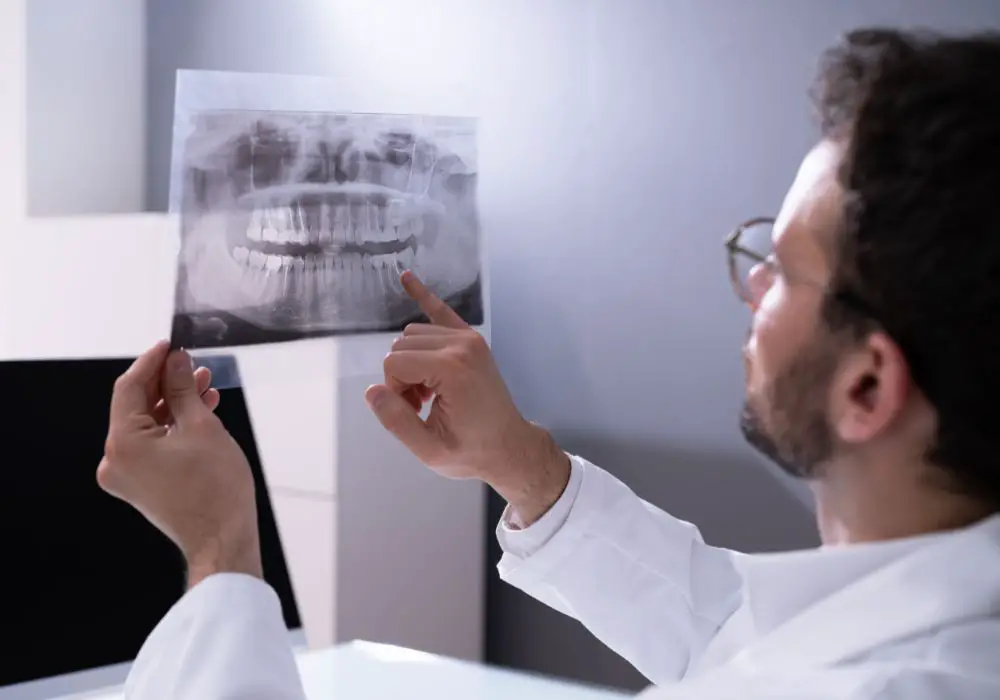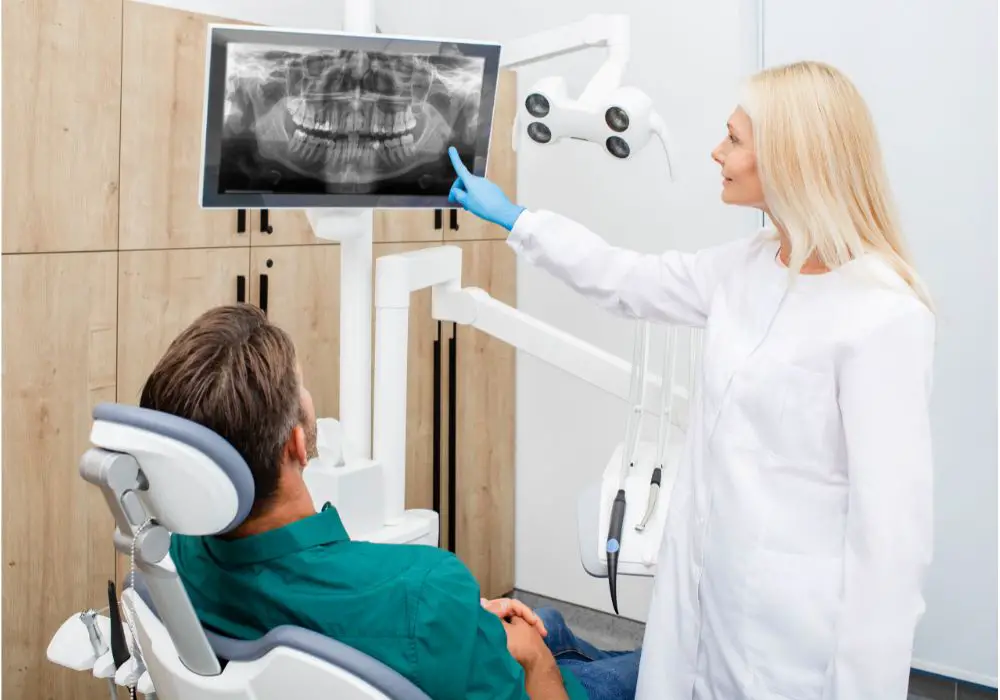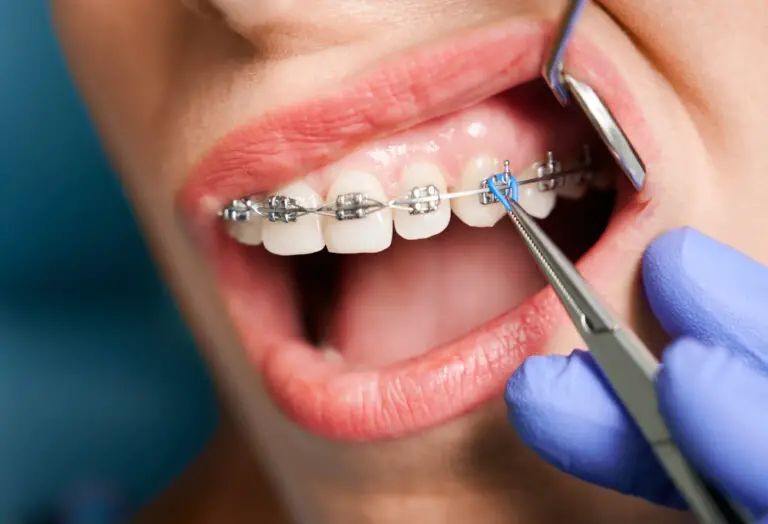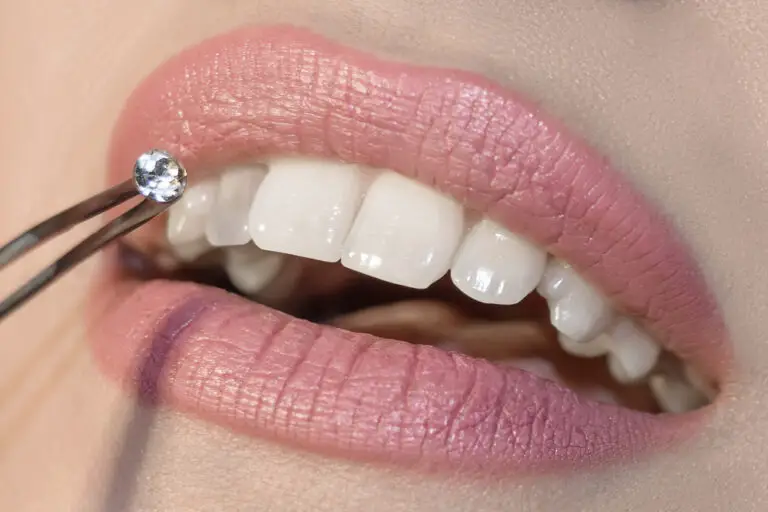Are you experiencing discomfort or pain in the back of your mouth? It could be a sign that your wisdom teeth are coming in. Wisdom teeth, also known as third molars, typically emerge between the ages of 17 and 25. While some people may not experience any symptoms during this process, others may feel soreness, tenderness, or even pain.
If you are curious about whether you can feel your wisdom teeth with your finger, the answer is yes, in some cases. If your wisdom teeth are impacted or growing in at an angle, you may be able to feel them with your tongue or finger. Additionally, if you have an infection or inflammation around your wisdom teeth, you may also be able to feel them. However, it is important to note that not everyone can feel their wisdom teeth, and the absence of any sensation does not necessarily mean that they are not coming in.
Understanding Wisdom Teeth

What Are Wisdom Teeth?
Wisdom teeth are the third molars that grow at the back of your mouth. Most people have four wisdom teeth, two on the top and two on the bottom. These teeth are the last to emerge, usually appearing in your late teens or early twenties.
When Do Wisdom Teeth Emerge?
Wisdom teeth can cause pain and discomfort when they emerge, especially if there is not enough space in your mouth for them to grow properly. Some people may not even realize that they have wisdom teeth until they experience pain or discomfort.
It is important to keep an eye on your wisdom teeth as they emerge to prevent any potential dental problems. Your dentist may recommend removing your wisdom teeth if they are causing pain or if they are likely to cause problems in the future.
Overall, understanding your wisdom teeth and how they emerge can help you take better care of your dental health. If you experience any pain or discomfort in your mouth, make sure to visit your dentist to get it checked out.
Signs of Wisdom Teeth Growth
If you’re wondering whether or not your wisdom teeth are growing in, there are a few signs to look out for. Here are some of the most common signs of wisdom teeth growth:
Pain and Discomfort
One of the most common signs of wisdom teeth growth is pain or discomfort in the back of your mouth. You may feel a dull ache or throbbing pain in your gums or jaw. This pain can be caused by the pressure of the growing teeth pushing against your other teeth or the surrounding bone.
Swelling and Inflammation
Another sign of wisdom teeth growth is swelling and inflammation in the back of your mouth. You may notice that your gums are red, tender, and swollen, especially in the area where your wisdom teeth are coming in. This swelling can make it difficult to open your mouth or chew your food.
If you experience any of these signs, it’s important to talk to your dentist. They can examine your mouth and take X-rays to determine if your wisdom teeth are growing in properly. In some cases, your dentist may recommend removing your wisdom teeth to prevent future complications.
Feeling Wisdom Teeth with Your Finger

If you suspect that your wisdom teeth are coming in, you might wonder if you can feel them with your finger. The answer is yes, but there are some things you should keep in mind before you start poking around in your mouth.
Positioning of Wisdom Teeth
Wisdom teeth are located at the back of your mouth, behind your molars. They are the last teeth to come in, usually between the ages of 17 and 25. Some people have all four wisdom teeth, while others may only have one or two.
When your wisdom teeth start to come in, you may feel some discomfort or pain in your jaw. You may also notice swelling or redness in the area. If you want to feel your wisdom teeth with your finger, make sure you wash your hands thoroughly first. Then, use your finger to gently feel around the back of your mouth where your molars are located. You may be able to feel a small bump or ridge where your wisdom teeth are starting to come in.
Safety Measures
It’s important to be careful when feeling around in your mouth. You don’t want to accidentally hurt yourself or cause an infection. Here are some safety measures to keep in mind:
- Wash your hands thoroughly before putting them in your mouth.
- Use your finger, not any sharp objects.
- Be gentle and don’t apply too much pressure.
- If you feel any pain or discomfort, stop immediately.
If you’re having trouble feeling your wisdom teeth or if you’re experiencing pain or discomfort, it’s best to see a dentist. They can take a closer look and determine if your wisdom teeth are coming in properly. In some cases, wisdom teeth may need to be removed if they are causing problems.
Professional Dental Examination
If you suspect that your wisdom teeth are coming in, it’s important to schedule a professional dental examination. A dentist or oral surgeon can evaluate your teeth and mouth to determine if you have impacted wisdom teeth or if another condition is causing your problems.
Regular Check-ups
Regular dental check-ups are essential for maintaining good oral health and catching any potential issues early on. During a check-up, your dentist will examine the condition of your teeth and gums, and may take x-rays to get a better look at your wisdom teeth.
Dental X-rays
Dental x-rays are a valuable tool for evaluating the position and development of your wisdom teeth. A panoramic x-ray is often used to capture all of the teeth and jaws in one image, which can reveal the presence of impacted wisdom teeth.
If your dentist or oral surgeon determines that your wisdom teeth are impacted or causing other issues, they may recommend removal. It’s important to follow their advice and schedule any necessary procedures to prevent further complications.
Wisdom Teeth Removal

If you are experiencing pain or discomfort in the back of your mouth, it may be a sign that your wisdom teeth are causing problems. In some cases, your dentist may recommend removing these teeth to alleviate your symptoms and prevent further complications.
When Is Removal Necessary?
Wisdom teeth removal is typically recommended when these teeth are causing pain, infection, or other dental problems. Some common reasons for removal include:
- Impacted wisdom teeth: When your wisdom teeth do not have enough room to grow, they may become impacted, or trapped, in your jawbone. This can cause pain, swelling, and infection.
- Crowding: If your mouth is too small to accommodate your wisdom teeth, they may push against your other teeth and cause crowding. This can lead to misalignment, bite problems, and other issues.
- Decay or gum disease: Because your wisdom teeth are located at the back of your mouth, they can be difficult to clean properly. This can make them more susceptible to decay and gum disease, which can cause pain and infection.
The Removal Process
If your dentist recommends wisdom teeth removal, the process will typically involve the following steps:
- Consultation: Your dentist will examine your mouth and take X-rays to determine the position of your wisdom teeth and the best course of action.
- Anesthesia: Before the procedure, you will receive anesthesia to numb the area around your teeth and prevent pain.
- Extraction: Your dentist or oral surgeon will then remove your wisdom teeth using specialized tools. The procedure typically takes less than an hour.
- Recovery: After the procedure, you will need to rest and avoid strenuous activity for a few days. Your dentist may also prescribe pain medication and recommend cold compresses to reduce swelling.
Overall, wisdom teeth removal is a common and relatively straightforward procedure that can help alleviate pain and prevent further dental problems. If you are experiencing symptoms related to your wisdom teeth, talk to your dentist about whether removal may be right for you.
Frequently Asked Questions
Can you feel your wisdom teeth with your tongue?
Yes, you can feel your wisdom teeth with your tongue. Wisdom teeth are located at the back of your mouth, and when they start to come in, you may feel a slight bump or ridge on your gums. This is a sign that your wisdom teeth are starting to erupt.
How do you know if your wisdom teeth are coming in?
You may experience some discomfort or pain in the back of your mouth when your wisdom teeth are coming in. You may also notice some swelling or redness in the gums around your wisdom teeth. If you experience any of these symptoms, it is best to see a dentist to determine if your wisdom teeth are coming in and if they need to be removed.
What are the signs of impacted wisdom teeth?
Impacted wisdom teeth can cause a range of symptoms, including jaw pain, swelling around the jaw, bad breath, an unpleasant taste in your mouth, and difficulty opening your mouth. If you experience any of these symptoms, it is important to see a dentist to determine if your wisdom teeth are impacted and if they need to be removed.
How do you relieve pain from partially erupted wisdom teeth?
To relieve pain from partially erupted wisdom teeth, you can try using over-the-counter pain relievers such as ibuprofen or acetaminophen. You can also try rinsing your mouth with warm salt water or applying a cold compress to the affected area.
What are some home remedies for wisdom tooth pain?
Home remedies for wisdom tooth pain include rinsing your mouth with warm salt water, applying a cold compress to the affected area, and using over-the-counter pain relievers such as ibuprofen or acetaminophen. You can also try using clove oil or a numbing gel to relieve pain.
Can a dentist tell if your wisdom teeth are growing in correctly?
Yes, a dentist can tell if your wisdom teeth are growing in correctly by taking x-rays of your mouth. X-rays can show the position of your wisdom teeth and whether they are coming in straight or at an angle. If your wisdom teeth are not growing in correctly, your dentist may recommend that they be removed to prevent further problems.







